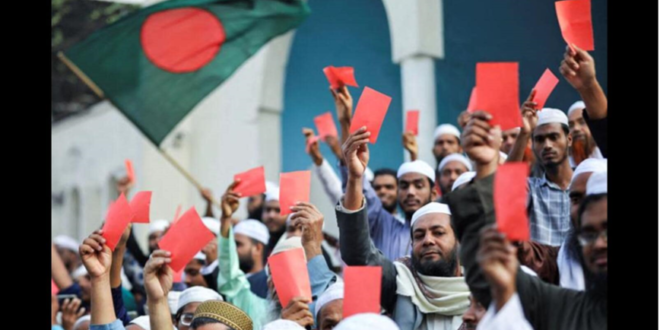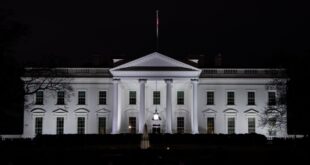Dimitra Staikou
On August 5, 2025, Nobel laureate and interim leader Mohammed Yunus announced that Bangladesh would hold parliamentary elections in February 2026. The Election Commission quickly confirmed the plan, promising an exact date later this year.
At first glance, this may look like the return of democracy after the dramatic fall of Sheikh Hasina in August 2024. Her ouster, triggered by a student-led uprising, was hailed by many as Bangladesh’s “second liberation.” Yet beneath the surface, the upcoming elections risk becoming less a celebration of democratic renewal and more a Trojan horse for illiberal politics.
The Legacy of Hasina’s Rule
To understand today’s crisis, it is worth recalling Hasina’s mixed legacy. For fifteen years, she delivered impressive economic growth—often 6–8% annually—while doubling per capita income and reducing extreme poverty from 25% to below 10%. Her government invested in infrastructure, electrification, and social welfare programs, turning Bangladesh into a global garment hub and lifting millions out of poverty.
But economic progress came at a high political cost. Hasina was accused of authoritarianism, election-rigging, and suppression of dissent. More than 640 journalists faced violence or imprisonment, while opposition parties were systematically weakened. Her critics were right to demand accountability. Yet the question today is whether Mohammed Yunus has charted a more democratic path—or simply replaced one form of authoritarianism with another.
The Contradictions of the Yunus Government
Yunus took power in 2024 on the back of mass protests against Hasina’s excesses. But his transitional government has quickly adopted its own troubling practices. The Awami League has been banned from the February 2026 polls, depriving millions of citizens of representation. Over 420,000 people have been detained in sweeping crackdowns known as “Operation Devil Hunt.” Even mainstream outlets like The Daily Star and Prothom Alo have been harassed.
In other words, Yunus criticizes Hasina for engineering unfair elections—while laying the groundwork for a manipulated contest of his own.
The Islamist Resurgence
The most alarming trend, however, is the rehabilitation of Jamaat-e-Islami. Banned by Hasina, Jamaat has been legally restored under Yunus, its leaders released from prison, and its voice re-amplified in national politics. In October 2024, Jamaat’s top leadership even held direct talks with Yunus.
This revival comes at a dangerous cost. Attacks on religious minorities have surged. Hindu temples and sculptures have been vandalized, particularly during festivals like Durga Puja. Jamaat’s Secretary General has openly warned Yunus of a “serious national crisis” if elections are not conducted “fairly”—a threat that sounds more like blackmail than democratic participation.
By bringing Jamaat back into the fold, Yunus risks re-opening the darkest chapters of Bangladesh’s political history.
The Rise of New Forces
Meanwhile, younger movements like the National Citizen Party (NCP), born from the student protests that toppled Hasina, promise something different. They call for a new constitution, an end to dynastic politics, judicial independence, and minority rights. Their vision of a “Second Republic” resonates with many who joined the 2024 uprising.
Yet the NCP faces two problems: low polling numbers compared to the BNP and Jamaat, and a categorical refusal to participate in elections under the current Election Commission. By staying out of the process, they risk turning their revolutionary momentum into political irrelevance.
The Crossroads Ahead
Bangladesh is approaching its most consequential election in decades. The hope of democratic renewal is real—but so are the dangers. Unless all major parties, including the Awami League, are allowed to compete, and unless the Election Commission demonstrates genuine impartiality, the February 2026 elections will not mark a rebirth of democracy. They will mark another betrayal of it.
In this sense, the elections risk becoming a Trojan horse: democratic on the outside, authoritarian and sectarian on the inside.
Bangladesh deserves better. After years of sacrifice, protest, and struggle, its people should not be asked to trade one form of repression for another. The international community—and more importantly, Bangladeshi citizens themselves—must demand that February 2026 be a real turning point, not just a new mask for old authoritarian habits.
Dimitra Staikou is a Greek lawyer, human rights advocate . She works as a journalist writing about human right's violations in South Asia and ctravels to India to get informed about the political situation there and the geopolitcs between India,China ,Pakistan and Bangladesh. She works for Greece's biggest newspaper Skai.gr and Huffpost.Gr as well as international distinguised news sites as Modern Diplomacy and Global Research.
 Geostrategic Media Political Commentary, Analysis, Security, Defense
Geostrategic Media Political Commentary, Analysis, Security, Defense





